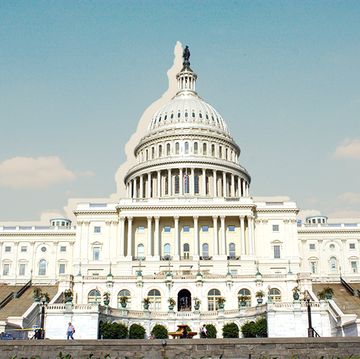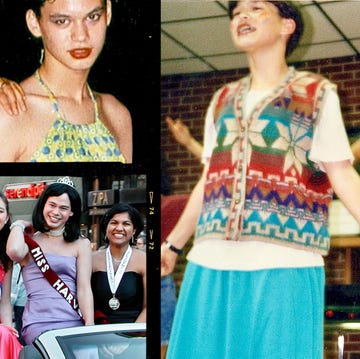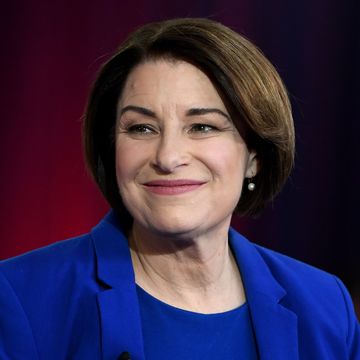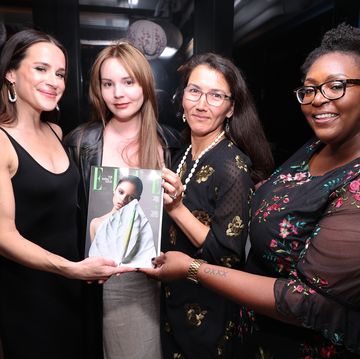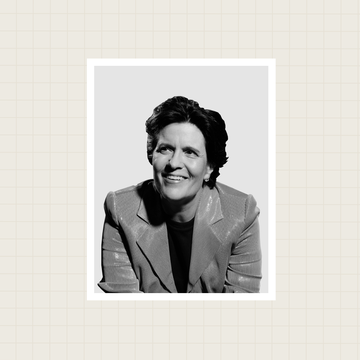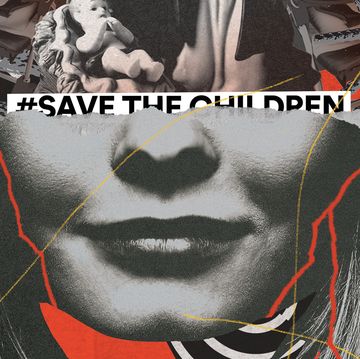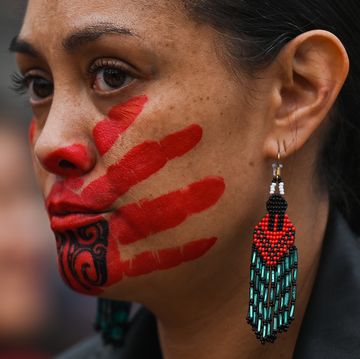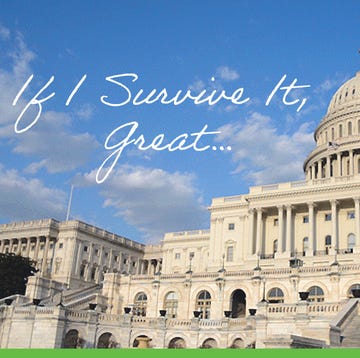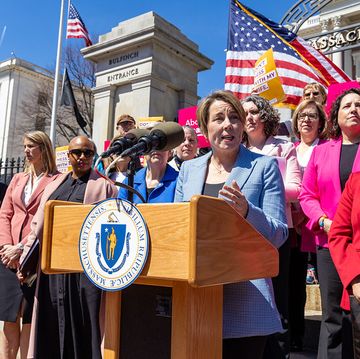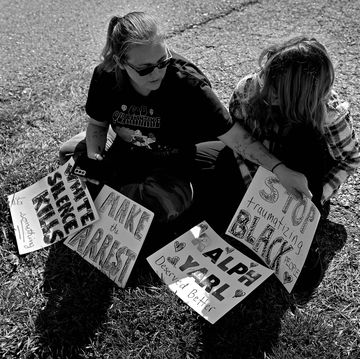Oriaku Njoku has worked in reproductive health, rights, and justice for nearly 10 years, but not much could prepare them for what happened last May. The day after the leak of a Supreme Court opinion signaled the overturning of Roe v. Wade, Njoku was offered a job leading the National Network of Abortion Funds, a network of nearly 100 grassroots organizations that remove barriers for patients by helping them pay for abortions, as well as the things needed to access the procedure: transportation, housing, and more. “I was like—,” they take a pause, and their voice jumps an octave: “This is wild.”
But if there’s anyone built for this moment, it’s Njoku. Prior to becoming the executive director of NNAF, Njoku, who uses she/they pronouns, co-founded and directed Access Reproductive Care-Southeast, an abortion fund that offers monetary and logistical support in six Southern states. “I’m a grassroots baddie through and through,” she says. “I know the work that’s happening on the ground.” Post-Roe, abortion funds are more essential than ever, as patients navigate legal and logistical minefields; as of this writing, 13 states have a near-total ban on abortion, forcing people to travel farther and spend more to access care.
Taking on their new role, Njoku wasn’t daunted. “I just knew: This is next-level,” she says. They’re also guided by the reproductive justice framework, meaning they’re not only focused on the right to have or not have children, but how issues like economic justice and racial justice intersect to affect access to that choice. “Having the right to legal abortion didn’t guarantee that it was accessible, because everyone’s lived experience is different.” They continue, “Our responsibility is to support our members to fund abortions and build power for a future where all of us can experience reproductive justice and our collective liberation. I believe it’s going to happen. But it’s going to take time, and it’s going to take regular-degular-ass people. It’s going to take all of us.”
On the experience that changed everything
“After about three months of working at Atlanta Women’s Center [abortion clinic] in 2014, I was like, folks should not have to hustle to get basic health care. Folks would say, ‘I finally got that $500 together,’ and I’d say, ‘Oh, I’m sorry if no one told you, but once you’re over 12 weeks, the price keeps going up.’ It would be so deflating. I was not only scheduling appointments, but also reaching out to various abortion funds and organizations to support people. And I was like, yo, why don’t we just start a fund?”
On applying reproductive justice values to the workplace
“I wanted to make sure that at ARC-Southeast, everyone who worked there felt what it’s like to have reproductive justice as a reality, even in a microcosm. I wanted to create that muscle memory for folks so when they do move on, they know what it feels like to be in a workplace where they’re honored and respected. In order to care for community, we also have to care for ourselves. So we had unlimited paid time off. We started a four-day work week in 2020. We did things to really stick to our boundaries. Every quarter, we provided a self-care stipend and gave ourselves a long weekend. We can’t work and support folks from a place of depletion.”
On the most challenging moment in their career so far
“Co-founding an organization and being able to instill practices and values early on and then transitioning to the national level. The hard thing is that, coming into an organization that’s been around for 30 years, there’s already culture. So how do I fit into the culture? But how do I also challenge the culture and try to shift things in a way that’s more in the line with practicing what we preach? It’s been a challenge, but I was hired for a reason. People saw something in me and said, ‘This is the direction that we want and need to be going.’ So, challenge accepted.”
On how their thoughts around ambition have changed
“To me, ambition is: what’s driving me? And being okay with where I’m at or being okay with knowing that something may not happen in my lifetime. I know I’m paving the path so my future children and grandchildren and seven generations from now will be able to live in a world that is way better than what we’re living in right now. I get to define success for myself and what that looks like and set my own goals and retweak my goals and be okay with changing it up if something doesn’t pan out. It’s a willingness to take some risks but do it in a grounded way.”
On leading in post-Roe America
“I can’t move from a place of fear. Thinking about the bravery of people who are accessing abortions in this moment and bravery of people who have accessed abortion [in the past], even talking to our elders who have experienced what it was like before Roe, what they did to fight for the wins that we got, there was some level of being fearless. There’s a responsibility as stewards of this movement. Our ancestors want us to live in a world where we’re not having to fight the fight in the same way. They went through all of that struggle to get us here. Our responsibility is then to take that to the next level.”
A version of this story appears in the April 2023 issue of ELLE.

Madison is a senior writer/editor at ELLE.com, covering news, politics, and culture. When she's not on the internet, you can most likely find her taking a nap or eating banana bread.




